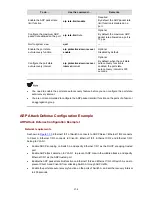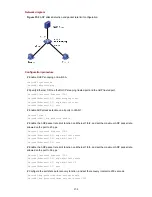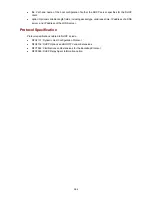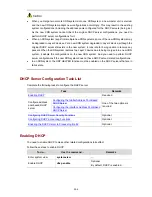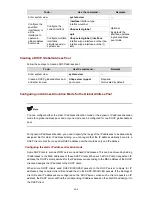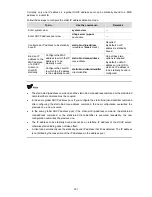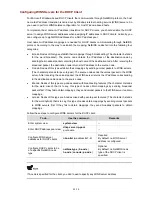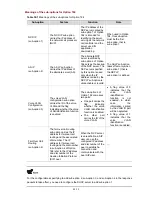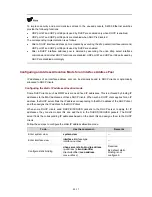
39-4
z
When you merge two or more XRN systems into one XRN system, a new master unit is elected,
and the new XRN system adopts new configurations accordingly. This may result in the existing
system configurations (including the address pools configured for the DHCP servers) being lost.
As the new XRN system cannot inherit the original DHCP server configurations, you need to
perform DHCP server configurations for it.
z
When an XRN system is split into multiple new XRN systems, some of the new XRN systems may
be degraded to Layer 2 devices. For a new XRN system degraded to Layer 2 device, although the
original DHCP server still exists in the new system, it runs idle for being unable to receive any
packets. When the XRN system restores to a Layer 3 device due to being merged into a new XRN
system, it adopts the configurations on the new XRN system. And you need to perform DHCP
server configurations if the new XRN system does not have DHCP server-related configurations.
z
In an XRN system, the UDP HELPER function must be enabled on the DHCP servers that are in
fabric state.
DHCP Server Configuration Task List
Complete the following tasks to configure the DHCP server:
Task
Remarks
Enabling DHCP
Required
Configuring the Global Address Pool Based
DHCP Server
Configure address
pool based DHCP
server
Configuring the Interface Address Pool Based
DHCP Server
One of the two options is
required
Configuring DHCP Server Security Functions
Optional
Configuring DHCP Accounting Functions
Optional
Enabling the DHCP Server to Process Option 82
Optional
Enabling DHCP
You need to enable DHCP to make other related configurations take effect.
Follow these steps to enable DHCP:
To do…
Use the command…
Remarks
Enter system view
system-view
—
Enable DHCP
dhcp enable
Optional
By default, DHCP is enabled.



